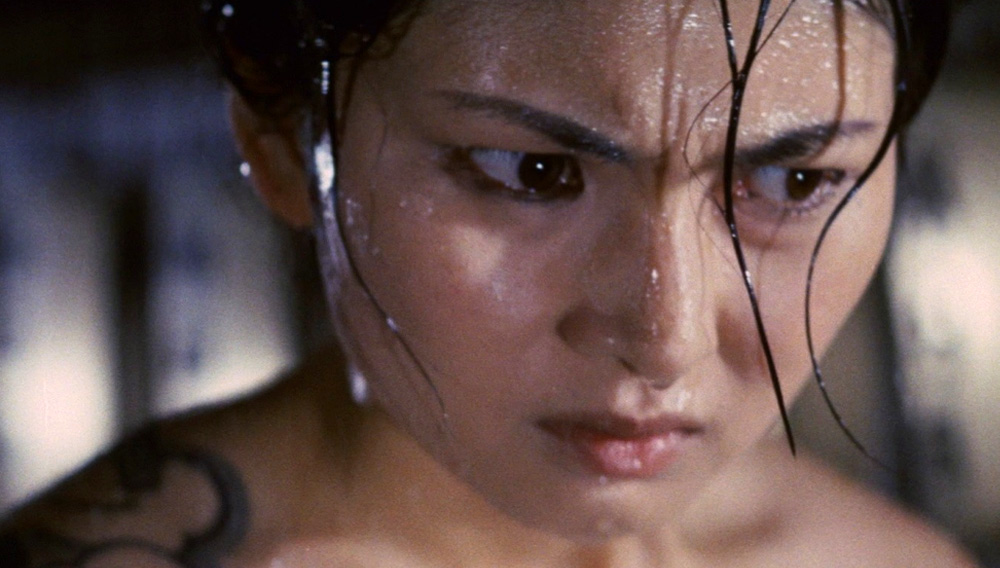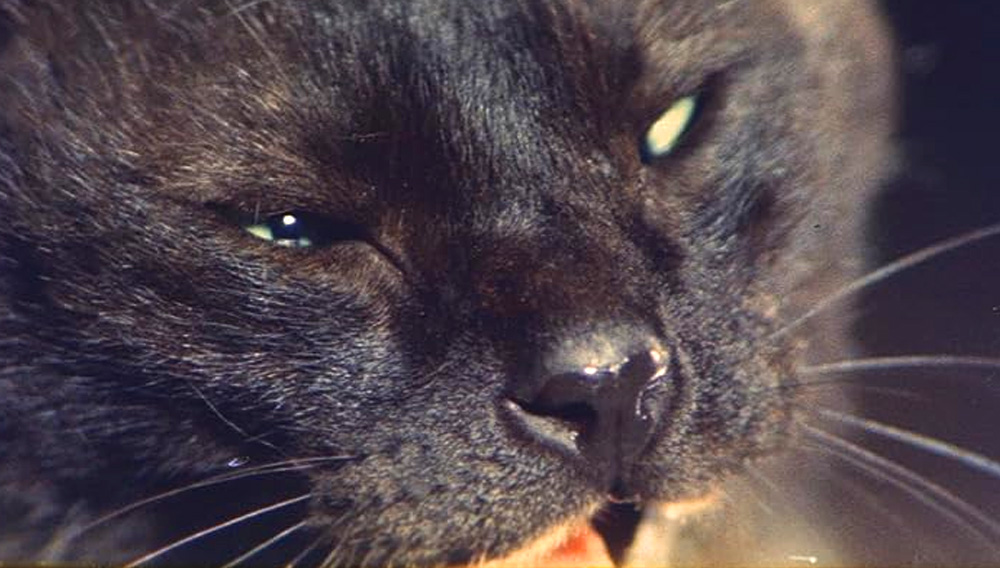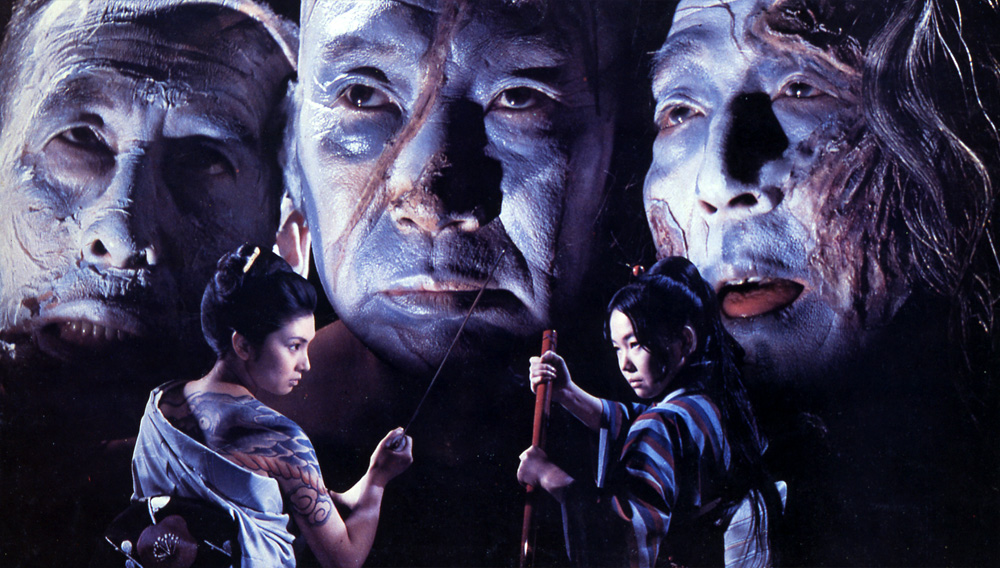When we kill, our faces resemble demons.
Hard to top that for a one-liner, even in the weird, wild world of Asian action cinema. Blind Woman’s Curse (1970), from the prolific Japanese studio Nikkatsu and filmmaker Teruo Ishii (the island nation’s so-called “King of Cult,” infamous for his Joys of Torture series), makes this pronouncement as the prelude to its final sword battle, a mano a mano clash between two women—the blind one of the title, and the one who bears her curse, the very nemesis who took her sight with the same savage, slicing motion that also killed her brother at the movie’s start.
Free to watch this month on Fandor, it’s some nasty-ass Yakuza business. The film sustains this chaos for a full hour and a half. Indeed, it wastes no time turning the screen into a gore-drenched human sushi festival with an over-the-top gang battle playing out under the opening credits.

There’s a very strange cat involved, too. Early on, a black cat arrives onscreen to lick up a stream of oozing blood, and returns throughout the film in various forms, engaging in more mischief and generally making life crappy (and creepy) for the cursed Akemi. She’s the original “girl with the dragon tattoo,” her expansive ink covering her back and branding her as an outlaw: lady boss of the Tachibana crew.
Meiko Kaji, the actress who plays her, starred in the early 1970s’ Stray Cat Rock franchise, incarnated the lead in Lady Snowblood and its sequel, and played the eponymous Female Prisoner 701: Scorpion (plus three more sequels). All of which is to say she’s an absolute legend in Japanese genre cinema, the very engine driving these chronicles of suffering, violence and revenge, without which latter-day homages like Kill Bill couldn’t exist. Quentin Tarantino, it is widely noted, reprised the performer’s own theme songs from Snowblood and Scorpion. Kaji has a song here, too, which goes like this:
“A woman boss in a man’s world
Laugh, then laugh again
I will ask no mercy
I will see things through
And on my back, a dragon tattoo.”
Kaji’s performance in Blind Woman’s Curse came before pop-cultural notoriety, as she graduated to onscreen prominence after a long string of movie credits going back to 1965, most of them under her birthname Masako Ōta. (At age 76, she still appears to be taking roles.) In Curse, she makes Ishii’s take on beauty and brutality very much her own, bringing vulnerable delicacy and lethal grace to a role that could easily become two-dimensional or cartoonish.

Not that the film doesn’t allow for plenty of hammy episodes. There’s ample buffoonery, as well as eye-rolling excess with occasional descents into an opium den populated by naked consorts. Ishii revels as he maxes out his genre card. As supernatural elements (that darn cat!) collide with comedy and a seemingly never-ending Yakuza battle royale, the filmmaker delights in slathering the frame with blood and guts—including a stomach-churning tattoo flaying—and surprises with moments of visual elegance and surreal poetry. After all, film history remembers him as the top dog of the ero-guro form, a rather literal merging of the erotic and the grotesque.
Ultimately, Blind Woman’s Curse is a revenge drama that resolves in a final showdown between Akemi and her sightless antagonist (played by jazz pianist and singer Hoki Tokuda, coincidentally Henry Miller’s fifth and final ex-wife). Swords flash in the darkness against a blatantly artificial sky painted in black and purple, a vertiginous swirl perched above Akemi’s tatted shoulder. The mesmerizing nightscape suggests the film is concerned with more than ecstatic violence and mayhem. Blood is drawn, yet somehow the women find a higher path—and Akemi lives to fight another day. Not so much the cat, alas.




